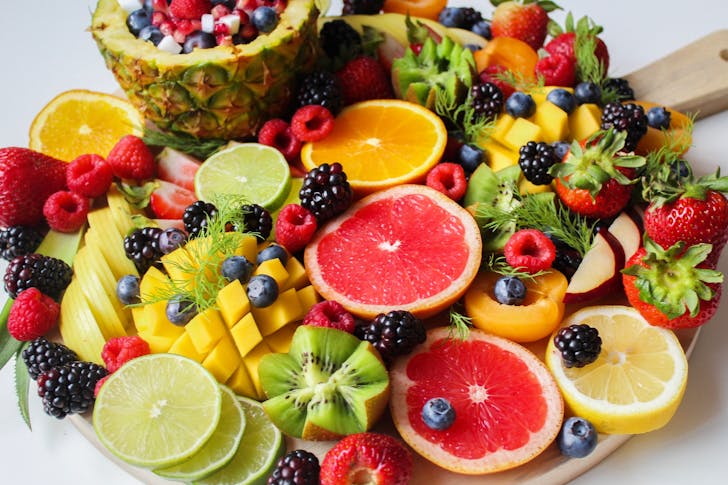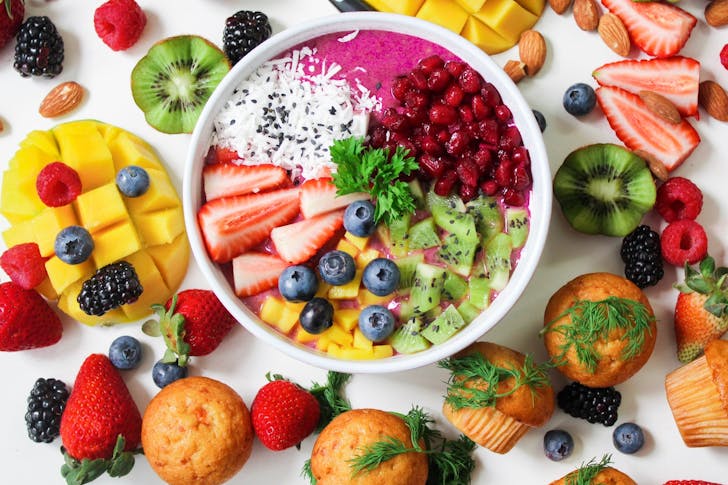The vegan diet is often praised for its heart health perks and its role in fighting climate change. But now, a new study adds another benefit to the list: Your brain. According to recent research published in Nutrients, switching to a plant-based diet may protect your mental and neurological health.
BUT it comes with a catch! You need to plan it carefully.
Vegan diets are packed with antioxidants and plant compounds that help fight oxidative stress and reduce inflammation in the body. These two factors are big players in the development of diseases like Alzheimer’s and Parkinson’s.
By cutting them down, your brain stays clearer, sharper, and more resilient as you age.
What Makes the Vegan Diet Brain-Friendly?
A vegan diet is full of fiber, phytonutrients, and healthy fats from nuts, seeds, and plants. These nutrients help feed the good bacteria in your gut. That is a big deal because your gut talks to your brain more than you might think.

Jane / Pexels / Foods rich in flavonoids like berries, kale, and dark chocolate protect your brain from aging and support smoother brain function.
A healthy gut creates short-chain fatty acids like butyrate, which actually help new brain cells grow and reduce inflammation.
That gut-brain link is strong. A high-fiber, plant-heavy diet fuels this process and supports better mood, memory, and focus.
The Nutrient Gaps You Can’t Ignore
Here is the flip side: A vegan diet can fall short on nutrients your brain desperately needs. Vitamin B12 is one of the biggest concerns. You can only get it from animal sources or supplements. If you don’t get enough, your brain suffers. Low B12 levels raise homocysteine, a marker linked to brain shrinkage and cognitive decline.
Iron is another risk. Studies show up to 30% of vegans in the West and more than half in some parts of Asia are iron deficient. Low iron levels can hurt focus, memory, and even mood. The same goes for omega-3 fats like DHA and EPA, which your brain needs to build cells and reduce inflammation.
Unfortunately, your body doesn't convert plant-based omega-3s well. So, you need an algae-based supplement to keep your levels healthy.
Plant-Based Moms Need to Be Extra Careful
For anyone pregnant or planning to be, nutrition matters even more. The baby’s brain development depends on nutrients like B12, iron, and iodine. Without them, neurodevelopment could suffer. That is why it is key for plant-based moms to supplement early and consistently.
Even outside of pregnancy, missing out on these nutrients can affect focus, memory, and mental well-being. Fortified foods, targeted supplements, and regular blood checks can keep your brain fueled and sharp.
A Vegan Diet May Help You With Anxiety
A well-planned vegan diet can lift your mood. Many people report feeling happier, calmer, and more focused after switching to plant-based eating. Why? Lower inflammation, better blood sugar control, and improved gut health all play a role. A stable gut and low inflammation help regulate serotonin, the chemical that affects mood.

Janet / Pexels / If you don’t get enough of the right nutrients, the effects flip. Low B12, iron, and omega-3s are all linked to higher rates of anxiety and depression.
That is why some studies show both positive and negative effects of plant-based diets on mental health. It all comes down to how well the diet is managed.
So, is the vegan diet good for your brain?
Yes, if you do it right. A vegan diet offers real brain benefits. It fights inflammation, supports gut health, and fuels your brain with powerful antioxidants. But it is not magic. If you are not careful, you can miss out on key nutrients that protect your mental and neurological health.




